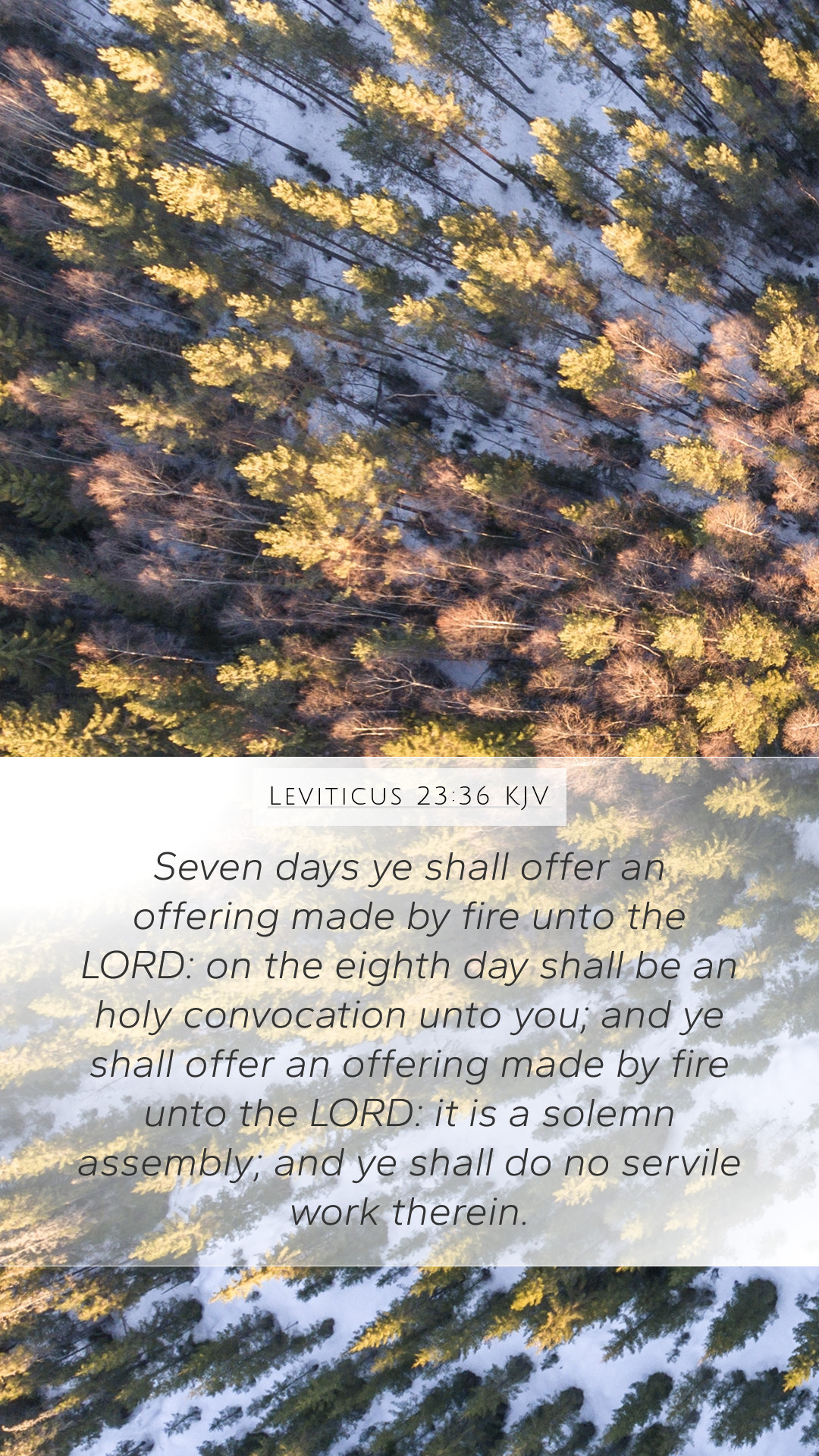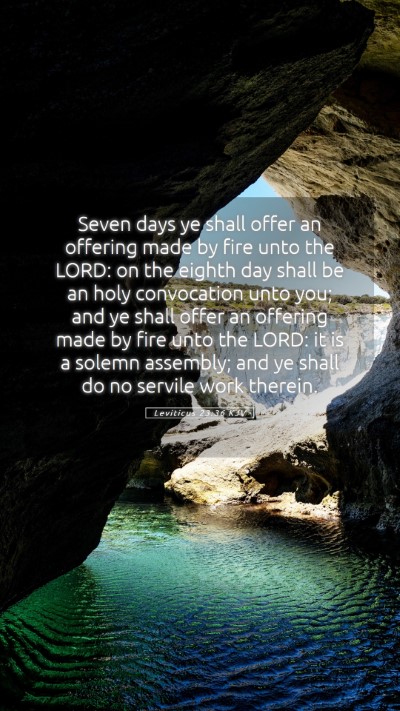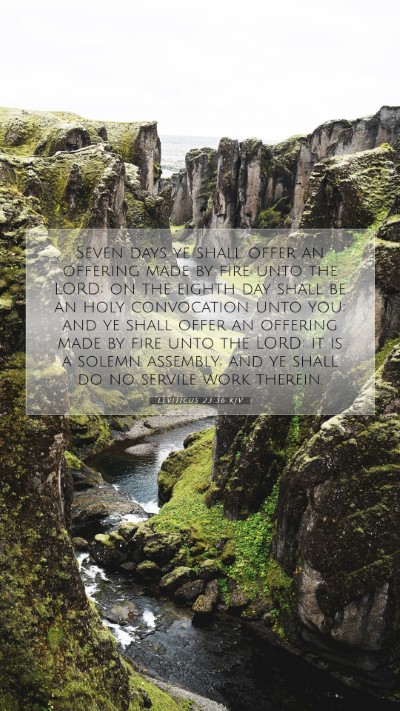Understanding Leviticus 23:36
Leviticus 23:36 states, "Seven days you shall present offerings by fire to the LORD. On the eighth day you shall hold a sacred assembly and present an offering by fire to the LORD. It is a solemn assembly; you shall not do any ordinary work."
Bible Verse Meaning and Significance
This verse is part of the instructions concerning the Feast of Tabernacles, or Sukkot, which is an important festival in Jewish tradition. The offerings required during this time hold significant theological and historical context.
According to Matthew Henry's Commentary, the repeated mention of offerings by fire underscores the need for worship and gratitude towards God. The acts of worship not only symbolize the people's devotion but also their reliance on God’s provision. This continuous offering for seven days emphasizes the connection between the physical act of offering and spiritual dedication.
Commentary by Albert Barnes
Albert Barnes explains that the call for a sacred assembly on the eighth day serves as a culmination of the prior week of festivities. He stresses the importance of ceasing from ordinary work to focus entirely on worshiping God. This is indicative of the rhythm of sacred time that the Israelites were to follow, reminding them of their identity as a people set apart for God’s purposes.
Insights from Adam Clarke
Adam Clarke’s commentary highlights that the eighth day is significant as it symbolizes a new beginning. In the Hebrew tradition, the seventh day represents completion, while the eighth day marks the start of something new, almost like a new creation. This reflects the belief in God’s ongoing work in their lives and the world.
Historical Context and Symbolism
Incorporating Biblical exegesis, it's essential to understand that these rituals were not merely formalities. They were deeply rooted in the history and experience of the Israelites as a redeemed community. The Feast of Tabernacles commemorates the Israelites' journey through the wilderness and their dependence on God’s provision.
The offerings symbolize gratitude and acknowledgment of God’s sovereignty. The emphasis on fire as part of the offerings illustrates purification and the presence of God. Fire represents the divine aspect, as we see throughout the scripture, where it is associated with God's holiness.
Application for Today
For modern readers, understanding Leviticus 23:36 invites contemplation of how we can present our hearts to God. The verse teaches us about the importance of setting aside time for worship, reflection, and community, not only within formal religious settings but in everyday life. Practicing gratitude and intentional worship can guide believers in their spiritual journeys.
Cross References
- Numbers 29:35-38 - Describes the offerings to be made during the Feast of Tabernacles.
- Deuteronomy 16:13-15 - Emphasizes celebrating the Feast of Tabernacles.
- John 7:37-39 - Highlights Jesus’ teachings during the Feast, noting its significance in the New Testament context.
Conclusion
In summary, Leviticus 23:36 condenses rich themes of worship, community, and remembrance within the covenant relationship between God and His people. As you explore Bible verse meanings, this verse serves as a lens through which to understand God's desire for connection and the importance of dedicating time for reflection and corporate worship within our lives today.


